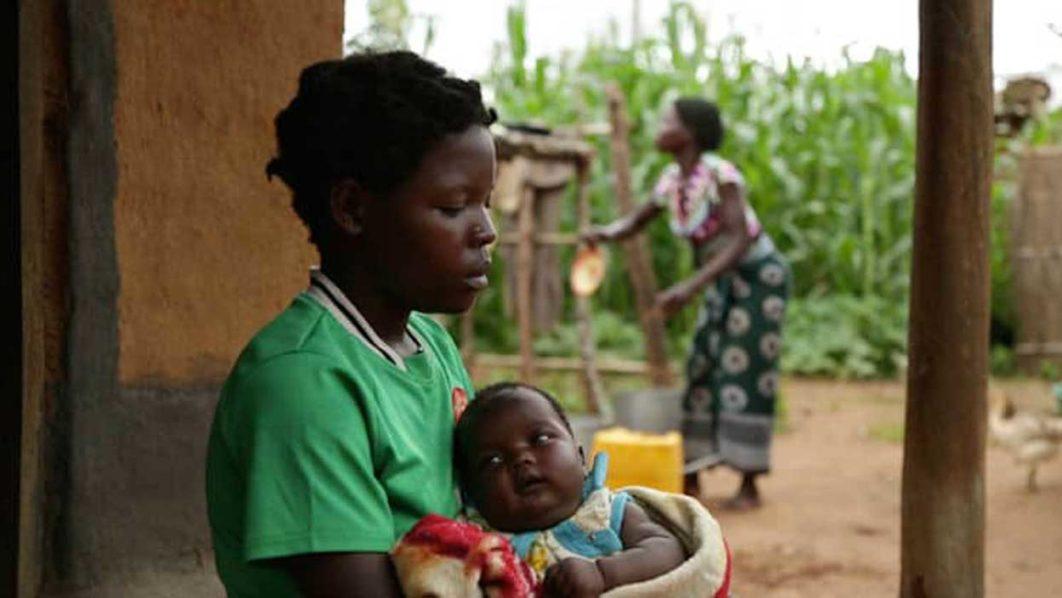The tragedy of the plight of the girl-child in Nigeria can be directly traced to the selfishness and uncaring attitude of politicians and public office holders who have the means to shield their daughters from abuse while looking the other way in respect of other girls. Why else would many of them refuse to domesticate the Child Rights Act, 18 years after it was enacted by federal lawmakers? Surely, excuse that the law is against their culture and religion is untenable, a mere camouflage for their ill-motivated desire. The import of their failure, among others, is that many girls from less privileged homes are forced into premature marriage and many suffer the ills associated with such marriage. While the so-called leaders may temporarily get away with their atrocities, the evil that they do lives after them, and will definitely haunt them at some point.
Child marriage is not the only problem afflicting the girl child who is equally exposed to dropping out of school and thus deprived of education. This is in addition to sexual assault, trafficking, prostitution, slavery and vulnerability to very low standard of living. Advocates have warned that the cost of oppressing females is high, because countries that fail women, invariably fail. They also warned that the country may remain underdeveloped if it fails to address the problems of marginalisation, abuse and exploitation of the girl-child.
Nigeria recently joined the rest of the world to commemorate the International Day of the Girl-Child (IDGC), but, as advocates pointed out, there is little to celebrate. The country ranks bottom six globally in child welfare, and bottom 10 for girls flourishing, an index that may be exacerbated by the pandemic and cultural inhibitions of the girl-child.
According to UNICEF, 1.3m Nigerian girls drop out of schools annually. Similarly, an NGO, Save the Children Nigeria, revealed in a report that an estimated 44 per cent of girls in Nigeria get married before their 18th birthday, which is one of the highest globally. The report also revealed that child marriage killed more than 60 girls a day. Obviously, Nigerian girls are endangered!
Child marriage means any marriage that takes place before age 18; but for many girls, marriage occurs much earlier. In some countries, girls as young as seven or eight are forced by their families to marry much older men. While child marriage occurs in every region of the world, and is practised across cultures, religions, and ethnicities; the highest rates of child marriage by country are observed in sub-Saharan Africa, in countries such as Niger, the Central African Republic, Chad and Nigeria. This is unacceptable, because under sections 21 to 23 of the Child’s Right Act, 2003, child marriage is prohibited in Nigeria.
Section 21 states that “No person under the age of 18 years is capable of contracting a valid marriage, and accordingly, a marriage so contracted is null and void and of no effect whatsoever.” While Section 22(1) states that “no parent, guardian or any other person shall betroth a child to any person;” and Section 23(d), says that “a person who betroths a child, commits an offence and is liable on conviction to a fine of N500,000; or imprisonment of a term of five years or to both such fine and imprisonment.”
Girls married off too early face immediate and lifelong consequences ranging from sexual exploitation, violence, abuse, discrimination and harmful traditional practices such as female genital cutting and food taboos. They lose their childhood, are robbed of childhood education and their future is endangered. These girls arrive at marriage with bodies inadequately developed for pregnancy because of food taboos that may have resulted in stunting with implications for the size of the pelvis. Early/unplanned pregnancy, in turn makes child-bearing hazardous, some resulting in increased risk of obstructed labour leading to vesico vaginal fistula (VVF) and maternal mortality. In addition, child brides are often unable to negotiate safer sexual practices and are therefore at a higher risk of HIV and other sexually transmitted infections. The practice of child marriage can also isolate girls from family and friends and exclude them from participating in their communities, taking a heavy toll on their mental health and well-being.
Available evidence also suggests that children of child brides are 60 per cent more likely to die in the first year of life than those born to mothers older than 19, and families of child brides are more likely to be poor and unhealthy.

Thus, alarming rate of girl-child marriage poses huge health danger to the children; and will reverse gains achieved in recent campaigns against child marriage. This is in contrast to the perception of parents that they are socially and economically protecting their young daughters through early marriage. Quite contrary, the practice actually exposes girls to increased health problems and violence, denies them access to social networks and support systems, and perpetuates a cycle of poverty and gender inequality.
Apart from controversial religious beliefs, factors responsible for girl-child marriage include armed conflicts, humanitarian crises, kidnappings, natural disasters, displacement, COVID-19 pandemic and economic recession. Jointly, they pose threats to the lives of millions of girls as they are pushed into the basket of deprivation.
These, according to State of Nigerian Girls Report include reduced access to education, nutrition, lack of protection and lack of access to basic social services.
Although Nigeria adopted the Child’s Rights Act in 2003, giving legal consent to both the United Nations Convention on the Rights of the Child and the African Charter on the Rights and Welfare of the Child, the law does not automatically become applicable in all of its 36 states and has to be domesticated. So far, only 25 of the states have localised the Act, while 11 states have shunned it. Children in those states suffer more from VVS.
Ending child marriage is the right and smart thing to do. Girls in Nigeria and elsewhere deserve to live full childhood, go to school, be free of the violence and negative health consequences associated with child marriage, and choose for themselves and without violence or coercion when and whom they marry.
There is indeed need to digitise Nigerian girls, in line with the theme of this year’s IDGC, ‘Digital generation, our generation.’ Beyond that, governments at all levels need to reinvigorate their relevant agencies to methodically avoid problems associated with child marriage. In particular, states that are yet to domesticate the Child Rights Act should do so now or forever bury their heads in shame.



















